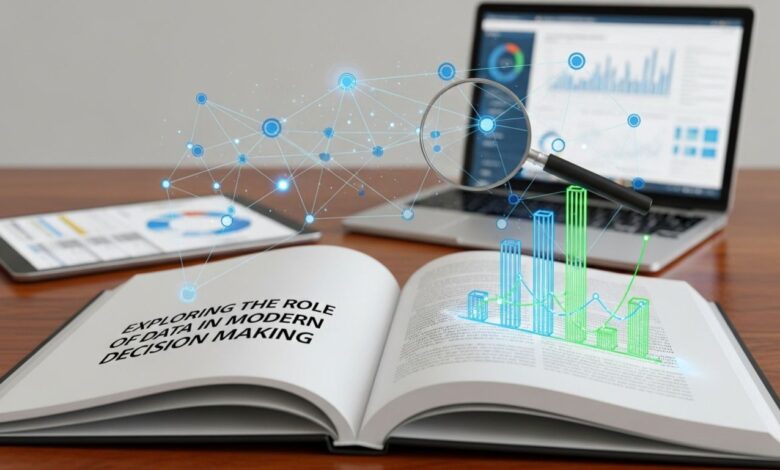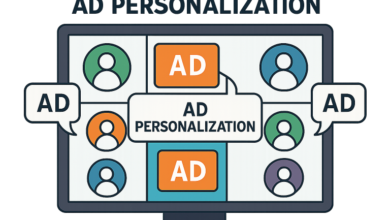Dados as: Exploring the Role of Data in Modern Decision Making

In today’s fast-paced world, data is at the heart of every decision we make. From businesses analyzing trends to individuals choosing where to dine out, the power of information shapes our lives in profound ways. But what exactly drives this phenomenon? Enter “dados as,” a term that embodies the transformative potential of data in modern decision-making.
As we navigate an ocean of information, understanding how to harness its significance becomes crucial. Whether you’re a seasoned executive or someone looking to improve personal choices, recognizing the role of data can elevate your approach and outcomes. Let’s dive into this fascinating realm and explore how dados as is revolutionizing decision making across various sectors.
What is Dados as?
Dados as is a concept that emphasizes the transformative power of data in decision-making processes. It refers to how organizations can leverage various types of data to inform strategies and actions.
At its core, Dados as highlights a shift from intuition-based choices to evidence-driven decisions. This approach enables businesses to dig deeper into insights derived from both big data and small datasets.
What makes Dados as particularly compelling is its adaptability across different sectors. Whether it’s retail, healthcare, or finance, the emphasis on actionable intelligence remains constant.
By integrating advanced analytics and AI tools into their operations, companies can optimize performance significantly. Thus, the essence of Dados as lies in embracing data not just as numbers but as crucial elements guiding future endeavors.
The Importance of Data in Modern Society
Data has become the backbone of modern society. It fuels innovation, drives efficiency, and enhances communication across various sectors.
In healthcare, for instance, data analytics enables better patient outcomes through personalized treatment plans. This ensures that medical professionals can make informed decisions based on real-time information.
In education, data helps identify student performance trends. Educators can tailor their methods to meet individual needs more effectively.
Moreover, in business settings, customer insights generated from data shape marketing strategies and product development. Companies leverage this intelligence to stay ahead of the competition.
Even in our daily lives, personal devices collect data to optimize user experience. From smart home systems to fitness trackers, they empower individuals with valuable insights into their routines and habits.
This reliance on data underscores its significance as a critical resource that informs choices at every level—from government policies to personal decisions.
Types of Data: Big Data, Small Data, and Everything In Between
Data comes in various shapes and sizes, serving different purposes. Big data is the massive volume of information generated daily. It includes social media interactions, financial transactions, and sensor data from IoT devices. This type of data can reveal trends that drive strategic business decisions.
On the other hand, small data refers to datasets that are manageable and straightforward to analyze. These often involve customer feedback or sales reports that provide valuable insights without requiring complex algorithms.
Then there’s everything in between—medium-sized data. This category might encompass regional market studies or aggregated user behavior analytics. Understanding these distinctions helps businesses tailor their strategies effectively.
Each type has unique challenges and advantages, depending on how it’s utilized for decision-making processes across industries. Together, they paint a comprehensive picture of modern analytics capabilities.
How Businesses are Using Data to Make Better Decisions
Businesses today harness data in transformative ways. They analyze customer behavior to tailor products and services, ensuring a seamless user experience. By understanding preferences, companies can create targeted marketing campaigns that resonate with their audience.
Data analytics also aids in forecasting trends. With insights into market shifts, businesses adapt strategies proactively rather than reactively. This agility is crucial for staying competitive.
Moreover, operational efficiency benefits from data-driven decisions. Companies streamline processes by examining performance metrics and identifying bottlenecks. Adjustments based on solid evidence lead to cost savings and improved output.
Collaboration tools now integrate real-time data sharing among teams, enhancing communication and decision-making speed. The power of dados as extends beyond traditional applications; it forms the backbone of innovative business strategies across industries. Each choice becomes informed by concrete insights rather than gut feelings alone.
The Role of Data in Personal Decision Making
Data plays a vital role in personal decision making, often guiding our choices without us even realizing it. From the apps on our phones to the websites we browse, data shapes our preferences and influences our behavior.
Take shopping as an example. Recommendations based on previous purchases help consumers make quicker decisions. This personalized approach saves time and enhances satisfaction.
Health is another area where data shines. Wearable devices track fitness levels and suggest lifestyle changes tailored to individual needs. Users gain insights that empower them to lead healthier lives.
Even social media interactions rely heavily on data analysis. Algorithms curate content that aligns with user interests, impacting how we connect with others or consume news.
As individuals become more aware of these dynamics, they can harness data-driven insights for better decision-making—be it financial planning or personal relationships—ultimately leading to improved outcomes in everyday life.
Ethical Considerations When Using Data for Decision Making
As data becomes a cornerstone of decision-making, ethical considerations rise to the forefront. Privacy concerns are paramount. Individuals often unknowingly share personal information, which can be exploited without their consent.
Transparency is crucial in how data is collected and utilized. Organizations must communicate clearly about their data practices. Users should know what information is gathered and for what purpose.
Bias poses another challenge. Algorithms trained on flawed or incomplete datasets can perpetuate inequality or discrimination. It’s vital to ensure that diverse perspectives inform data analysis.
Additionally, accountability matters when mistakes occur. Companies should establish clear guidelines and frameworks to address potential misuse of data.
Ethical engagement fosters trust between organizations and individuals. This trust enhances relationships while encouraging responsible innovation in the ever-evolving landscape of decision-making driven by dados as.
Challenges and Limitations of Relying on Data
Relying on data can be a double-edged sword. While it offers valuable insights, several challenges come with its use.
One major issue is data quality. Not all datasets are created equal. Inaccurate or outdated information can lead to misguided decisions.
Another concern is overfitting. Businesses may become too focused on past trends, ignoring emerging patterns that could signal change.
Data privacy cannot be overlooked either. As companies collect more information, the risk of breaches increases, putting sensitive user details at stake.
Additionally, there’s the human element to consider. Data-driven decisions might overlook intuition and experience, which play critical roles in many situations.
Biases inherent in data collection methods can skew results. When decision-makers rely solely on flawed data sets without questioning their origins or contexts, they risk perpetuating existing inequalities and misconceptions.
The Future of Data and Decision Making
As we move forward, the landscape of data and decision making is set to evolve dramatically. The integration of artificial intelligence and machine learning will redefine how organizations analyze information.
Real-time data processing will become commonplace. This shift allows businesses to make instant decisions based on the latest trends and consumer behaviors.
Moreover, predictive analytics will empower companies to foresee market changes before they happen. By understanding patterns in large datasets, they can strategize proactively rather than reactively.
On a personal level, individuals will harness advanced tools for their own choices. Smart applications could recommend optimal paths in everything from health management to financial planning.
However, this future raises questions about privacy and ethics. As reliance on dados as increases, ensuring responsible usage becomes paramount for both organizations and consumers alike.
Conclusion
The value of data in decision-making processes cannot be overstated. As we navigate a world increasingly shaped by information, understanding how to leverage dados as effectively becomes essential. From businesses harnessing big data to enhance their strategies, to individuals making informed personal choices based on reliable insights, the implications are vast and profound.
While the benefits of utilizing data are significant, it’s crucial to remain aware of ethical considerations and potential challenges. Transparency in data usage is necessary for building trust among stakeholders. Moreover, recognizing limitations helps avoid over-reliance on quantitative metrics alone.
Looking ahead, advancements in technology will continue shaping our approach toward decision-making with data. The integration of artificial intelligence and machine learning promises even deeper insights that can refine our understanding further.
Embracing this evolving landscape requires an open mind and a willingness to adapt. As we explore new frontiers within the realm of datos as, the future looks promising—full of opportunities waiting to be seized through smarter decisions grounded in solid information.



